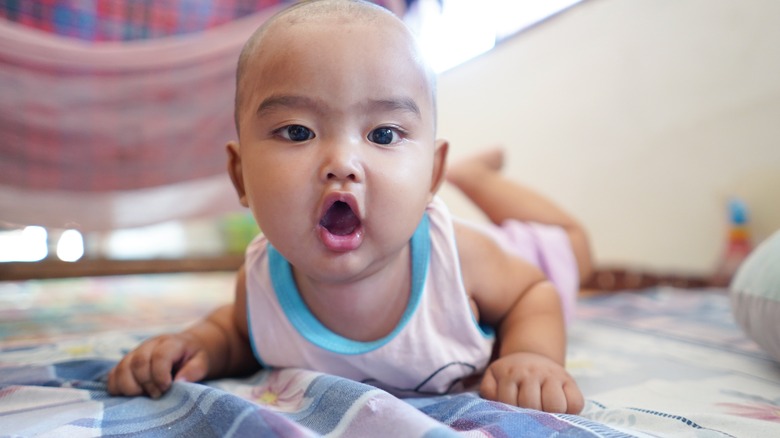What Science Says About Babies Born In September
September encompasses two zodiac signs: Virgo and Libra. Although both signs have birthdates in September, they come with a unique set of personality traits. The former spans birthdays between August 22 and September 22, as per Mindbodygreen. Virgos tend to pay extra attention to detail and organization and are independent, practical, and dedicated individuals. They also have a dry sense of humor and are always happy to serve others. Libras celebrate their birthdays in the later part of the month, between September 23 and October 22, according to Allure. They are known for being intellectuals and boasting exquisite taste, while also containing a knack for turning on the charm in social situations.
Exploring the zodiac sign is just one way to understand the personalities and character traits of people born in September. However, it isn't necessarily the most scientific. Luckily, the National Bureau of Economic Research carried out a research study designed specifically to determine certain traits unique to September-born babies, which also happens to be the most popular month to be born (via Tiny Beans). You may be surprised by the results of the study.
September babies have higher levels of success
The National Bureau of Economic Research study found that one of the most prominent traits of September babies was that they were often high achievers and likely to experience academic success. They linked this to the fact that many September babies are the oldest members of their class when entering kindergarten due to birthdate cut-offs. This makes them more mature and likely to be at a slightly more advanced stage of development when compared to their peers. Entering school at an older age also increased the likelihood that September babies would go to college and stay out of legal trouble.
The above study isn't the first attempt at using science to determine generalized traits in September-born individuals. Not only will children born in September likely show advanced academic aptitudes, but they will also have a lower likelihood of developing bipolar disorder, according to this 2012 study. This mental illness was found to follow a seasonal distribution, with individuals born in January most likely to develop the disorder in adulthood. In fact, depending on the season, babies will be exposed to higher levels of vitamin D, which is a key factor in proper neurodevelopment. This exposure to vitamin D will also ensure they experience normal bone growth in utero and are carried to full term, as per this 2006 study, which goes a long way in setting them up for a healthy life.


